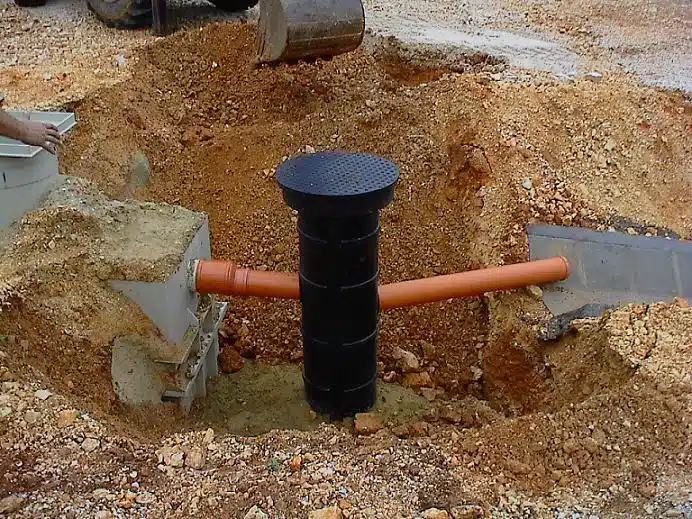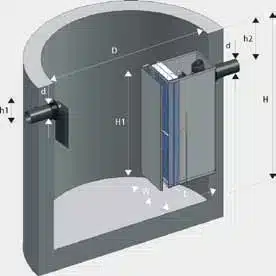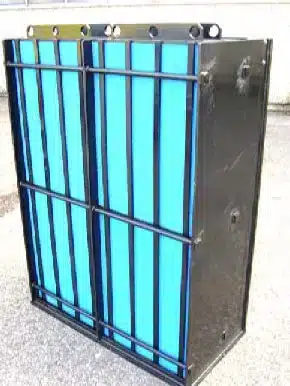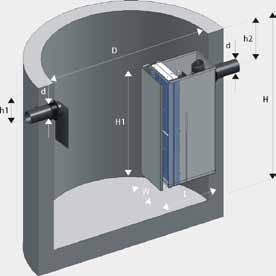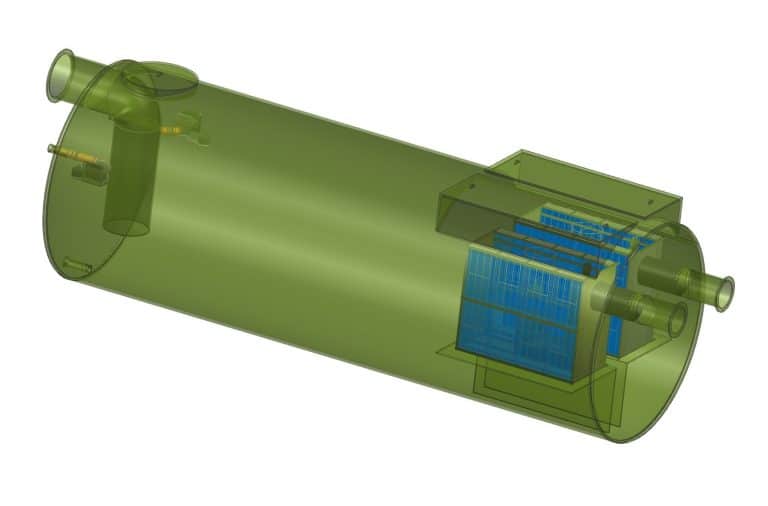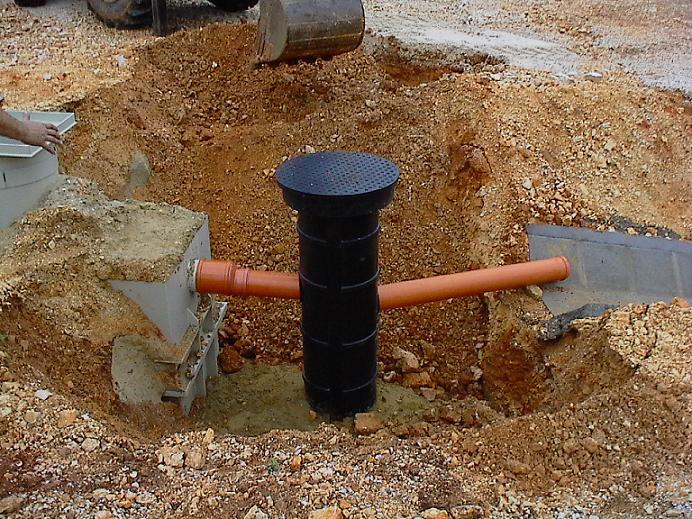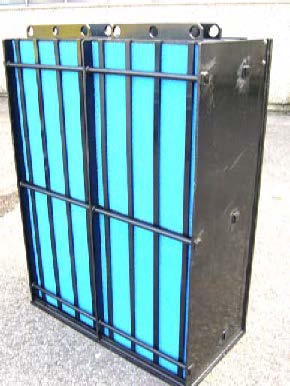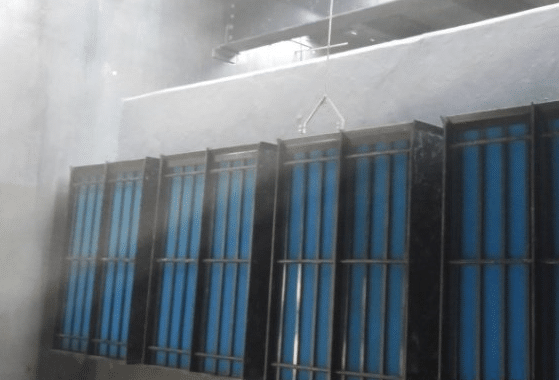Do you know about the hidden heroes protecting New Jersey’s waterways? New Jersey Below Ground Oil Water Separators are key to keeping our environment safe. They work hard under the surface, making sure pollutants don’t harm our water.
In New Jersey, industries must follow strict rules for wastewater. That’s where underground oil/water separators come in. These systems, like those from Freytech Inc., meet or beat North American standards for clean water discharge. They use advanced tech to separate pollutants efficiently.
Freytech’s below ground oil water separators use special technology to remove many pollutants. They can handle free oil, motor oil, diesel, gasoline, and jet fuel. These systems are so good they can remove trace amounts of emulsified oil, keeping our environment clean.
Key Takeaways
- Below ground oil water separators are vital for treating industrial wastewater in New Jersey.
- These systems help industries follow strict environmental laws.
- Advanced separators can achieve up to 5 PPM separation efficiency.
- They use enhanced coalescing technology to remove various hydrocarbon pollutants.
- Freytech Inc. offers top-notch underground oil/water separators for New Jersey industries.
Introduction to Below Ground Oil Water Separators in New Jersey
New Jersey industries must follow strict environmental rules. That’s why subsurface separator systems are key. They help companies meet environmental standards and keep local waterways safe.
The importance of oil-water separation in industrial settings
For many New Jersey businesses, separating oil and water is a must. It stops pollution and keeps the environment safe from harmful substances. Good separation systems make sure industrial wastewater and stormwater are treated right before they’re released.
Environmental regulations and compliance in New Jersey
New Jersey has tough environmental laws. Companies need top-notch spill prevention gear to follow these rules. Below ground oil water separators are a big help. They treat wastewater and stop oil from getting into the water.
Benefits of below ground systems
Below ground oil water separators have many perks. They save space, work well, and separate oil and water reliably. These systems can handle a lot of wastewater, making them perfect for industrial use. By using them, businesses can follow environmental laws and stay efficient.
How Below Ground Oil Water Separators Work
Below ground oil water separators are key in treating stormwater runoff. They remove oil and pollutants from water. This protects the environment and meets regulations.
Principles of Oil-Water Separation
Oil grit separators use gravity to separate oil from water. Oil floats to the top, while heavier particles fall to the bottom. This lets clean water flow out, leaving behind the pollutants.
Components of a Below Ground Separator System
A typical separator has inlet and outlet pipes, a separation chamber, and systems to hold sediment. The chamber has coalescing media. This helps small oil droplets merge into bigger ones for easier removal.
Enhanced Coalescing Technology
Advanced separators use special coalescing media to draw in tiny oil droplets. This technology boosts efficiency, removing oil as small as 20 microns. Some top units can get rid of oil down to 5 parts per million or less.
New separators have adjustable skimmers to automatically remove oil. This means they work well all the time and need less upkeep. With these advanced features, below ground separators are great for treating stormwater runoff in many industrial places.
Applications of Underground Oil/Water Separators in New Jersey Industries
Underground oil/water separators are key in New Jersey’s industrial world. They are essential for treating industrial wastewater across different sectors. From manufacturing to automotive, these separators help companies follow environmental rules.
In compressor stations, these separators clean condensate by removing oil before it goes into the water. Surface water from industrial areas often has oils and chemicals. Catch basin inserts team up with separators to filter this water, keeping local waterways safe.
Cooling systems in power plants and factories produce oily wastewater. Separators clean this water, making it safe to dispose of or reuse. In projects to clean contaminated groundwater, these systems pull out and treat the oily water, keeping the water table safe.
Machine shops use separators to clean coolant and cutting fluids, making them last longer and cutting down on waste. Floor drains in garages and warehouses connect to separators, stopping oil from getting into the sewer. Even small uses like cleaning mop water benefit from these systems, ensuring clean water discharge.
New Jersey’s industries count on underground oil/water separators to keep up with environmental rules and improve their work. By handling oily wastewater well, companies protect the environment and follow strict laws.
New Jersey Below Ground Oil Water Separators: Features and Advantages
Below Ground Oil Water Separators bring big benefits to New Jersey industries. They are great at handling stormwater runoff and preventing spills. Let’s look at their main features and why they’re a good choice.
Compact Design and Space-Saving Benefits
New Jersey’s industrial sites often have limited space. Below Ground Oil Water Separators solve this with their compact size. They go underground, saving surface area for other uses. This makes them perfect for busy industrial areas with little room.
Durability and Corrosion Resistance
Long-lasting performance is important. Many of these separators use fiberglass, which resists corrosion well. This means they last longer, even with harsh chemicals and weather. They don’t need to be replaced often, cutting down on costs.
Easy Maintenance and Operation
Keeping these separators in top shape is easy. They have lift-off covers for easy checks. Inside, there are oil skimmers and special media packs that help separate materials well. These parts are simple to clean and replace, making upkeep straightforward. Even those with little technical knowledge can use them without trouble.
Freytech Inc.’s Advanced Separator Technology
Freytech Inc. is at the forefront with their leading New Jersey Below Ground Oil Water Separators. Their Model FOWS is a top pick for treating industrial wastewater. It’s known for its reliable and cost-effective way of separating petroleum hydrocarbons from water.
Their separators use advanced coalescing technology for top-notch results. This technology ensures cleaner discharge, meeting tough environmental standards. Freytech’s systems can get down to 5 PPM, with some hitting an amazing 0.1 PPM for tiny oil traces.
Businesses in New Jersey find Freytech’s design easy to use. The separators are simple to operate and need little upkeep. This means saving time and resources while keeping operations running smoothly.
Freytech is a reliable partner for companies needing efficient and compliant wastewater solutions. Their New Jersey Below Ground Oil Water Separators are at the forefront of industrial wastewater treatment. They offer both environmental safety and operational efficiency.
Selecting the Right Below Ground Oil Water Separator for Your Facility
Choosing the right subsurface separator system is key for good industrial wastewater treatment. Let’s look at what to think about when picking one.
Factors to Consider When Choosing a Separator
When picking a below ground oil water separator, think about what your facility needs. Look at the flow rate, the type of oil, and what your industry demands. These will guide you in finding the best environmental compliance solution for your business.
Sizing and Capacity Requirements
The size of your separator is important. Freytech has six sizes, from 2 to 25 GPM, ready for fast delivery. Choose a size that fits your facility’s wastewater output for efficient treatment and to meet regulations.
Customization Options for Specific Needs
You can customize your separator to meet your unique needs. You can choose dense coalescing packs for better polishing, elevation stands, and high-temperature construction for over 130°F. Adding auxiliary external oil reservoirs, pre-filters, and post-filters with high absorption coalescing media can also improve your system’s performance.
These separators are crucial in storm water systems. They process runoff to meet the US EPA’s Clean Water Act standards. With effective oily water treatment, facilities protect the environment and dodge big fines.

